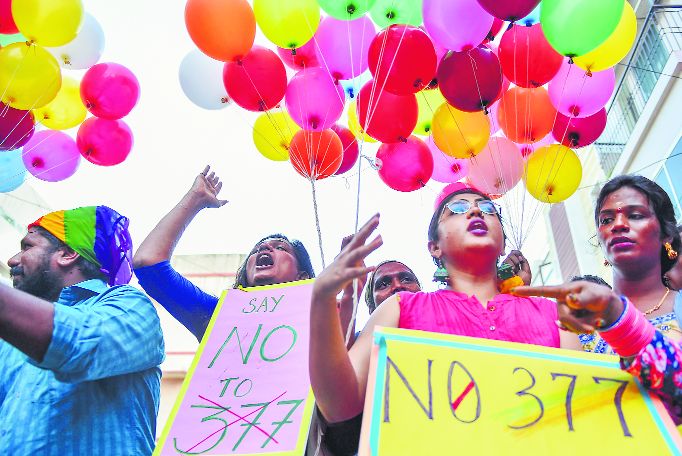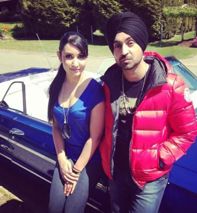2018 was a dramatic year for constitutionalism.
Book Title: Sex and the Supreme Court
Author: Edited by Saurabh Kirpal.
Saurabh Malik
The sun was gradually going down on the summer of 2018 as Keshav Suri looked out of his window. It was September 6, the day of judgment on Section 377, a provision in the penal code that criminalised sexual acts “against the order of nature”. The hospitality tycoon recalls how the sky was daubed in bright, beautiful hues as if to announce, “This is a special day.”

Edited by Saurabh
Kirpal.
Hachette.
Pages 345.
Rs 699
“As the judgment was read out, I was stunned. It is one thing to have conviction in your dream, and quite another to experience the gratification of it. I had known in my heart that it would be a favourable outcome, but what I hadn’t expected was the kind of judgment that came out...,” writes Suri in ‘Sex and the Supreme Court: How the Law is Upholding the Dignity of the Indian Citizen’.
Edited by Saurabh Kirpal, the book forcefully projects itself as a farraginous chronicle of compendious writings by legal luminaries and citizens who played their part in bringing about a metamorphosis in the legal thought process.
The book describes Suri as “one of those who petitioned to revoke Section 377 in the Supreme Court of India”. What he and other authors of eminence have talked about on a multitude of issues today appears as if it was bound to happen. But back then, change was hard to predict. The law, like a wary transgressor, was transcending the walls of privacy built around the lives of people and peeping behind the curtains into the seclusion of bedrooms to catch them in acts perceived to be unlawful. From “unnatural sex” to “adultery”, it was all illegal.
But things changed in and around 2018, when the Supreme Court through a series of unrelated judgments paved the way for sexual autonomy. The book adroitly captures the journey brought about by the judgments: from a closed society protected by archaic laws to the one governed by constitutional morality and not social conventions.
“Twenty Eighteen was a dramatic year for Indian constitutionalism. This was the year the Supreme Court embraced sexuality as an integral part of citizenship,” write Menaka Guruswamy and Arundhati Katju in one of the write-ups “From adultery to sexual autonomy”.
At first glance, any book with “sex” in the title can give a somewhat different impression. But a closer look brings out the seriousness of the topics and the dexterity with which these have been handled. Authors Justice MB Lokur, Justice BD Ahmed, Justice AK Sikri, Mukul Rohatgi, Madhavi Divan, Menaka Guruswamy, Arundhati Katju and Saurabh Kirpal are among the names not just confined to the text of judgments, their eminence has travelled beyond legal circles.
The topics are broadly grouped into four categories: “Sex and the Individual”, “Sex and the Community”, “Sex and the Workplace” and “Sex and Religion”. The hardback comes out to be different from books presenting a drab analysis of path-breaking judgments.
Some of the articles emerge as powerful stories that help the reader go along on a corporeal and emotional journey from uncertainties to celebrations, and are not just absorbing and amusing, but also stimulating, stirring and thought-provoking. A must-read book.














